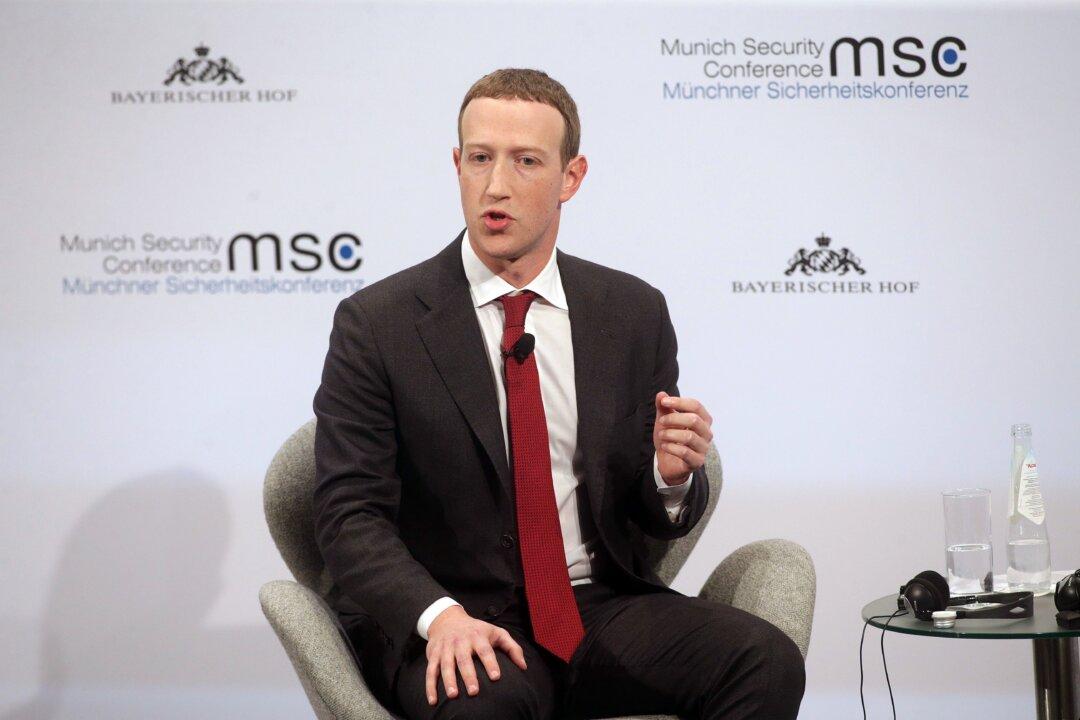A regulatory framework that seeks to preserve free speech online needs to be adopted for social media before repressive countries like China begin influencing the rules about the free flow of information, Facebook CEO Mark Zuckerberg told global leaders and security officials in Europe over the weekend.
Zuckerberg told the Munich Security Conference in Germany on Feb. 15 that he was “very worried” that countries like China were encoding “authoritarian values” into how the internet is regulated.





